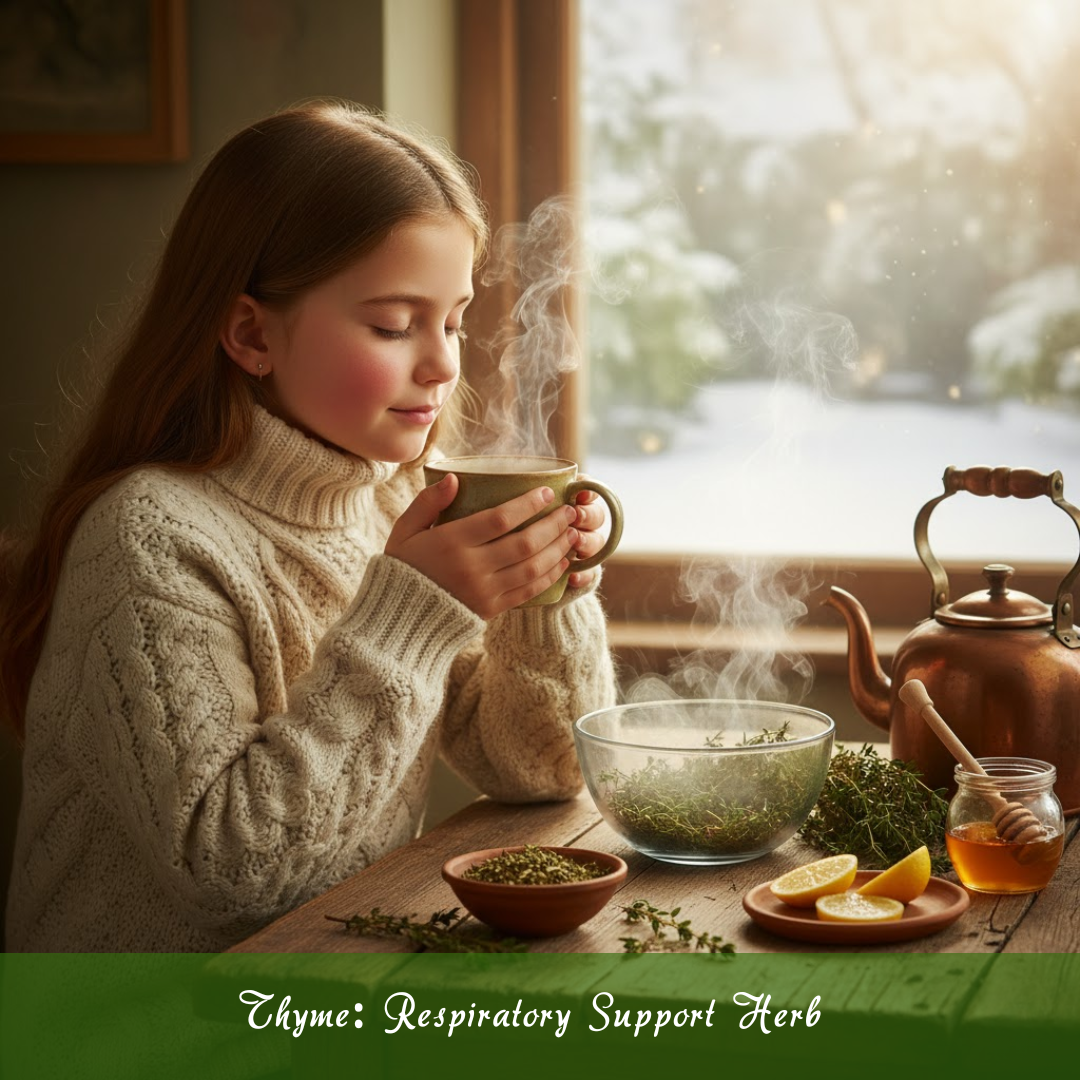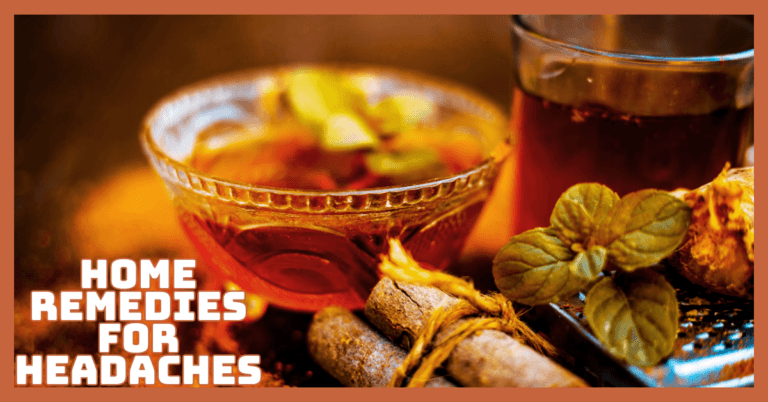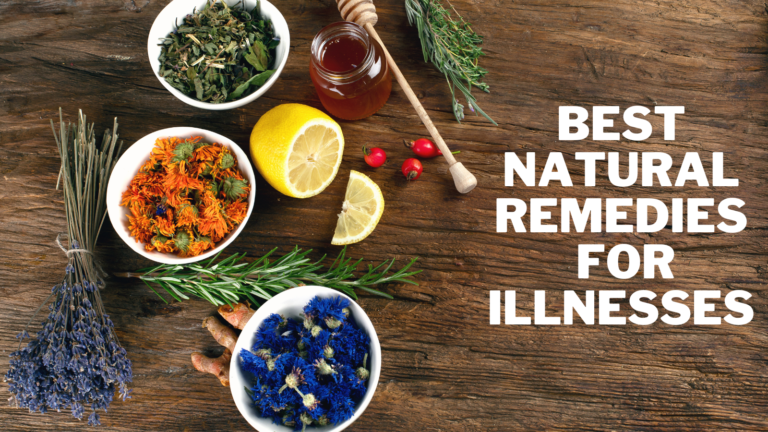Healing Herbs for Winter Wellness That Boost Your Immunity
Despite its beauty, winter may be physically taxing. Cold winds, shorter days, and indoor heating often leave us vulnerable to colds, flu, and low energy. The good news is that nature has given us powerful allies—herbs.
Certain herbs are known to boost immunity, fight infections, and even improve mood. In this guide, we will explore the best healing herbs for winter wellness and how to use them in simple ways.
Why Winter Affects Our Immunity
Winter affects our immunity in several interconnected ways, making our bodies more vulnerable to infections. One major factor is reduced sunlight exposure, which limits vitamin D production—a nutrient essential for regulating immune responses.
Lower vitamin D levels can weaken our defence against pathogens, increasing susceptibility to colds, flu, and other illnesses.
Cold temperatures can have an impact because they can narrow blood vessels in the respiratory system, which limits the passage of immune cells to the most critical locations.
Indoor heating further complicates matters by lowering humidity, which dries out mucous membranes in the nose and throat, the body’s first line of defence against invading viruses.
Additionally, winter often brings lifestyle changes: people tend to stay indoors more, increasing close contact and the likelihood of viral transmission.
Stress levels can also rise during the holiday season, and chronic stress is known to suppress immune function. Poor sleep patterns, less physical activity, and heavier, less nutritious diets during winter further compromise immunity.
Together, these factors create an environment where the immune system struggles, making natural support, such as herbs and proper nutrition, even more essential.
Healing Herbs for Winter
1. Echinacea: Your Winter Immunity Ally
Echinacea is a popular herb known for its powerful immune-boosting properties. Traditionally used to prevent and reduce the duration of colds, it stimulates the body’s natural defences.
Available as tea, tincture, or capsules, Echinacea works best when taken at the first signs of illness. It supports respiratory health, fights infections, and can reduce inflammation.
Gentle yet effective, it’s safe for most adults, though pregnant or nursing individuals should consult a doctor. With regular, early use, Echinacea strengthens the immune system naturally, helping you stay healthier during cold, flu-prone winter months.
Pro Tips
- Start with the first cold symptom.
- Steep the tea for 10 minutes for potency.
- Store capsules in a cool place.
- Choose organic for maximum benefits.

2. Ginger: The Warming Winter Wonder
Ginger is a versatile root that warms the body and supports immunity. It’s excellent for digestion, reducing inflammation, and fighting colds. You can use fresh slices in tea, add them to smoothies, or take powdered capsules.
Its spicy, zesty flavour also soothes sore throats and nasal congestion. Regular use helps circulation and overall wellness. Ginger pairs well with lemon or honey for extra benefits.
It’s gentle, safe, and easy to incorporate daily. During winter, a cup of ginger tea can feel comforting while giving your immune system a natural boost.
Pro Tips
- Slice fresh for a stronger flavour.
- Boil 10 minutes for potent tea.
- Add honey for throat relief.
- Combine with Lemon for a vitamin boost.
3. Garlic: Nature’s Natural Antibiotic
Garlic is a must-have for winter wellness. It fights bacteria and viruses and strengthens immunity naturally. Raw garlic is the most potent, but roasted or cooked garlic works too.
It reduces inflammation, improves heart health, and supports respiratory function. Garlic can be added to soups, stir-fries, or taken as capsules.
Regular use can shorten cold duration and prevent infections. Its pungent aroma is a small trade-off for powerful benefits.
Always crush or chop before use to activate its healing compounds. Incorporating garlic daily is simple and effective for winter immunity.
Pro Tips
- Crush garlic to release allicin.
- Eat raw for maximum benefits.
- Add to soups for an immune boost.
- Take capsules if the flavour bothers you.
4. Turmeric: The Golden Immunity Booster
Turmeric is one of the most potent healing herbs for winter, boosting immunity and protecting against seasonal illnesses. Curcumin, its active compound, supports immunity and fights winter inflammation.
Best consumed with black pepper for better absorption. You may use turmeric in golden milk, smoothies, and curries. It improves digestion, reduces respiratory discomfort, and enhances overall wellness.
Regular use keeps your body resilient against infections. Gentle and versatile, turmeric is easy to incorporate daily. Its warm, earthy flavour makes it comforting during cold months. Pairing it with coconut milk or honey enhances taste and potency.
Pro Tips
- Combine with black pepper always.
- Add to warm milk for absorption.
- Include in soups and stews.
- Use fresh root for the most substantial effect.

5. Elderberry: The Viral Fighter
It's well known that elderberries naturally shorten colds and the flu. It boosts the immune system and is high in vitamin C and antioxidants. Elderberry syrup, tea, or gummies are common ways to take it.
When taken early, it can lessen the intensity and duration of illnesses. Elderberry also protects respiratory health and fights free radicals. Safe for most adults, it’s a winter staple for immunity.
Cooking or simmering berries unlocks their healing compounds. Elderberry blends well with honey or ginger for extra flavour and potency. This natural remedy is gentle, effective, and perfect for winter care.
Pro Tips
- Take at first cold signs.
- Simmer berries for maximum effect.
- Mix with honey for taste.
- Store syrup in the fridge always.
6. Peppermint: The Soothing Respiratory Herb
Peppermint is more than a refreshing herb; it’s a respiratory aid. Its menthol helps clear sinuses and eases congestion. Peppermint tea soothes sore throats and supports digestion.
You can use fresh leaves, dried tea, or essential oil (inhaled, not ingested). Regular use strengthens respiratory wellness and provides mild antiviral benefits. Peppermint’s superb, minty flavour also helps calm nausea or stomach discomfort.
It’s gentle and safe for adults and children. Adding honey or lemon enhances the benefits. In winter, peppermint tea is both comforting and healing.
Pro Tips
- Steep leaves for 5–7 minutes only.
- Add honey for throat comfort.
- Use fresh leaves for potency.
- Inhale steam for sinus relief.
7. Cinnamon: The Warming Winter Spice
Cinnamon is a popular choice among healing herbs for winter, helping to boost immunity and fight seasonal infections. It warms the body, supports immunity, and improves circulation.
You can simmer cinnamon for winter pastries, add it to drinks, or sprinkle it on cereal. It helps fight infections, reduces inflammation, and stabilizes blood sugar.
Combining cinnamon with ginger or honey boosts potency. Its sweet, spicy flavour makes winter wellness easy and enjoyable. Daily use strengthens defences naturally.
Stick to Ceylon cinnamon for the safest, high-quality results. Incorporate it into drinks, soups, or baked goods for flavour and immune support.
Pro Tips
- Use Ceylon for the safest option.
- Pair with honey for a flavour boost.
- Sprinkle on warm drinks daily.
- Combine with ginger for potency.
8. Rosehip: Vitamin C Powerhouse
Rosehip is a bright red berry packed with vitamin C, antioxidants, and immunity-boosting nutrients. It supports collagen production, fights infections, and strengthens overall health.
Rosehip tea, syrup, or powder is commonly used in winter. It's tart, fruity flavour blends well with honey or cinnamon. Regular intake helps prevent colds, supports skin health, and reduces inflammation.
Rosehip is gentle and suitable for daily use. Infusing tea releases its nutrients efficiently. Perfect for warming winter drinks, rosehip is a tasty and natural way to support your immune system.
Pro Tips
- Steep 10 minutes for full nutrients.
- Add honey for flavour and benefits.
- Use dried berries for convenience.
- Combine with hibiscus for taste.
9. Thyme: Respiratory Support Herb
Thyme is a small herb with enormous winter benefits. It has antimicrobial properties and supports respiratory health. Thyme tea or infusions soothe sore throats, fight infections, and strengthen immunity.
It can also be added to soups and stews for flavour and wellness. Regular use protects against colds and flu. Thyme contains vitamins A and C, antioxidants, and compounds that fight bacteria.
Its earthy, aromatic flavour enhances meals and teas. Inhalation of thyme steam can ease congestion naturally. This versatile herb is a winter kitchen essential for both taste and health.
Pro Tips
- Add to soups for flavour and benefits.
- Steep 10 minutes for tea.
- Inhale steam for congestion relief.
- Use fresh leaves when possible.

10. Astragalus: The Immune Strengthener
Astragalus is one of the most effective healing herbs for winter, boosting immunity and protecting against seasonal illnesses. Its root contains antioxidants, antiviral compounds, and anti-inflammatory properties.
Astragalus tea, tincture, or capsules are popular ways to take it. Regular use supports energy, protects respiratory health, and improves overall resilience. It’s gentle yet effective for long-term immune support.
Combining Astragalus with ginger or honey enhances its benefits. Safe for adults, it’s an ideal winter herb for daily use. This traditional Chinese herb is nature’s gift for maintaining strong immunity through cold months.
Pro Tips
- Simmer the root for 20–30 minutes.
- Combine with ginger for potency.
- Take daily during the winter months.
- Use high-quality organic sources only.
11. Holy Basil (Tulsi): The Sacred Immunity Herb
Tulsi, often known as holy basil, is a highly regarded herb that boosts immunity and lowers stress. Rich in antioxidants, it supports respiratory health and helps fight infections.
Tulsi tea or extracts can be consumed daily. Its gentle adaptogenic properties balance the body, improve energy, and enhance mental clarity. Tulsi also has antiviral and antibacterial compounds, making it excellent for winter wellness.
The leaves have a slightly spicy, clove-like flavour, perfect in teas or infused water. Regular use helps prevent colds and supports overall vitality, making Tulsi a winter staple in every herbal arsenal.
Pro Tips
- Brew fresh leaves for the best flavour.
- Drink tea daily for immunity support.
- Add honey to reduce bitterness.
- Store dried leaves in an airtight container.
12. Licorice Root: Sweet Respiratory Support
Licorice root is a soothing herb for the throat and respiratory system. It helps fight infections, reduces inflammation, and boosts immunity naturally.
You can make tea from the root or use it in tinctures. Licorice root eases coughs, sore throats, and congestion. Its natural sweetness makes it pleasant to drink—regular use supports adrenal health and overall winter wellness.
Avoid excessive use if you have high blood pressure. Combining licorice with ginger or peppermint enhances flavour and benefits. It’s a gentle, effective herb for staying healthy throughout cold months.
Pro Tips
- Simmer root 10–15 minutes for tea.
- Pair with ginger for a warming effect.
- Limit intake for blood pressure safety.
- Store in a cool, dry place.
13. Sage: The Herbal Winter Defender
Sage is a valuable addition to healing herbs for winter, supporting immunity and relieving common cold and respiratory symptoms. It has antibacterial, antiviral, and anti-inflammatory properties.
Sage tea or steam inhalation can relieve sore throats, congestion, and cold symptoms. Fresh or dried leaves work well in teas, soups, and winter dishes.
Regular use strengthens defences and promotes overall wellness. Sage also has antioxidant compounds that protect the body from oxidative stress.
Its earthy, slightly peppery flavour enhances recipes naturally. Sage is safe for daily use and easy to include in your winter routine, making it a simple herb for immune support.
Pro Tips
- Steep leaves for 5–7 minutes for tea.
- Add honey to soothe the throat.
- Inhale steam for congestion relief.
- Use fresh or dried leaves.

14. Rosemary: The Aromatic Immune Booster
Rosemary is an aromatic herb with antiviral and antioxidant properties. It strengthens immunity, improves circulation, and supports respiratory health. You can use it in teas, soups, or roasted dishes.
Rosemary’s essential oils have mild antimicrobial effects, helping fight winter infections. Its fragrant, pine-like aroma also uplifts mood and reduces stress. Regular use enhances winter wellness naturally.
Rosemary pairs well with garlic, thyme, or lemon for extra benefits. Easy to grow at home, fresh rosemary ensures a constant supply of this versatile herb. It’s perfect for keeping colds and flu at bay.
Pro Tips
- Add fresh sprigs to soups.
- Brew tea for respiratory support.
- Pair with garlic for potency.
- Use essential oils in steam inhalation.
15. Marshmallow Root: Gentle Respiratory Soother
Marshmallow root is excellent for soothing irritated throats and respiratory passages. Rich in mucilage, it coats and calms inflammation.
Tea or tincture helps relieve coughs, congestion, and sore throats. Regular use supports winter wellness and boosts immunity indirectly by reducing stress on the respiratory system.
Gentle and safe for most adults and children, it blends well with honey, ginger, or licorice for additional flavour and potency.
Marshmallow root is mild, effective, and ideal for maintaining comfort during cold months. A cup of marshmallow root tea feels calming and healing on chilly winter evenings.
Pro Tips
- Steep root 10–15 minutes for tea.
- Mix with honey for a soothing effect.
- Blend with ginger for warmth.
- Store in an airtight container.
Create a Profitable Holistic Business That Transforms Lives
🌿 Discover inspiring holistic business ideas that blend nature, wellness, and purpose.
Learn how passionate nature lovers are building income streams while helping others live more balanced, mindful lives.
Read Profitable Holistic Business Ideas That Transform Lives
16. Nettle: The Nutrient-Rich Winter Herb
Nettle is a nutrient powerhouse, packed with vitamins A, C, K, iron, and minerals. Nettle is one of the most nutritious healing herbs for winter, boosting immunity and supporting overall health during cold months.
Nettle tea, tinctures, or capsules are common ways to use it. Its mild flavour works well in soups or smoothies. Regular intake during winter helps prevent fatigue and supports resistance to infections.
Nettle also promotes respiratory wellness and detoxification. Fresh or dried leaves are both effective, though gloves are needed when handling raw plants. A simple daily cup of nettle tea provides a natural nutrient boost for winter wellness.
Pro Tips
- Use gloves when harvesting fresh leaves.
- Steep for 5–10 minutes for tea.
- Add lemon for flavour and vitamin C.
- Drink daily for immune support.
17. Lemon Balm: Winter Calming Herb
Lemon balm is a calming herb that lowers stress and encourages sleep, which indirectly boosts immunity. Its antiviral properties support resistance to cold viruses. Tea or tinctures are the most common uses.
The fresh, lemony flavour is refreshing and comforting. Lemon balm helps calm the mind, ease anxiety, and improve digestion during the winter months. Regular use keeps energy stable and strengthens the immune system.
It blends beautifully with mint, chamomile, or honey for extra flavour and benefits. Lemon balm is gentle, safe for adults and children, and perfect for a winter wellness routine.
Pro Tips
- Steep for 10 minutes for the best tea.
- Add honey to enhance the taste.
- Combine with chamomile for relaxation.
- Use fresh leaves for maximum aroma.

18. Oregano: The Antimicrobial Winter Herb
Oregano is a powerful addition to healing herbs for winter, helping to strengthen immunity and protect against seasonal illnesses.
It helps fight infections, supports respiratory health, and boosts immunity. Fresh or dried leaves can be added to soups, teas, or meals. Oregano oil is potent in small doses.
Regular use can reduce winter illness risk and support overall wellness. Its robust, slightly spicy flavour enhances savoured dishes naturally.
Combining oregano with garlic, thyme, or rosemary amplifies its immune benefits. A simple pinch in winter soups or a few drops of oil in tea can keep colds at bay.
Pro Tips
- Use fresh leaves for best potency.
- Add to soups for daily benefits.
- Combine with garlic for an immune boost.
- Use oregano oil cautiously, diluted.
FAQ
Q1. What Are The Best Herbs For Winter Immunity?
Echinacea, Ginger, Garlic, Elderberry, Turmeric, Astragalus, and Tulsi.
Q2. How Do I Use Herbs To Prevent Colds?
Drink teas, take tinctures or capsules, and add herbs to meals.
Q3. Are Immunity Herbs Safe For Children?
Yes, but check the dosage or consult a pediatrician.
Q4. When Should I Take Immunity Herbs?
At the first signs of illness or daily for prevention.
Q5. Can These Herbs Replace Medicine?
No, they support immunity but don’t replace medications.
Q6. Which Herbs Help Respiratory Health?
Peppermint, Thyme, Mullein, Sage, and Licorice Root.
Q7. How Long To See Results?
Some effects are immediate; full benefits appear with regular use.
Q8. Are Fresh Herbs Better Than Dried?
Although dried herbs also work well, fresh herbs have greater potency.
Q9. Can I Grow These Herbs At Home?
Yes, many grow well in pots or gardens.
Q10. Which Herbs Work Well Together?
Ginger + Turmeric, Elderberry + Honey, Peppermint + Lemon.
Conclusion
Incorporating healing herbs for winter into your daily routine helps strengthen immunity and keep your body healthy throughout the cold season.
Herbs like Echinacea, Ginger, Garlic, and Elderberry support your body, fight infections, and boost overall wellness. These herbs not only protect against colds and flu but also improve digestion, respiratory health, and energy.
Consistent use, combined with a healthy lifestyle, keeps you resilient. Embrace these natural remedies to enjoy a healthier, stronger, and more vibrant winter season.
I trust you enjoyed this article on the Healing Herbs for Winter Wellness That Boost Your Immunity. Please stay tuned for more inspiring guides, helpful tips, and ideas to help you live closer to nature every day.
Take care!
— JeannetteZ
💬 Your Opinion Is Important To Me
Do you have thoughts, ideas, or questions? I’d love to hear from you. Please leave your comments below or email me directly at Jeannette@Close-To-Nature.org.
📚 More Nature-Inspired Reads
Explore more ways to connect with nature, nurture your pets, and live in harmony with the world around you 🌿







